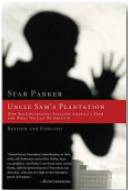|
|
|
Since President Lyndon Johnson declared war on poverty in 1964, American taxpayers have spent $16 trillion on welfare programs. Still, the poverty rate in the United States remains virtually unchanged.. As a former welfare mom, Star Parker knows firsthand why people end up on welfare and why so many never leave. With a social "safety net" that rewards poor choices and discourages responsibility, Parker says it's no wonder that welfare recipients tend to become irresponsible wards of a paternalistic State. She likens the welfare system to the slave plantations of the antebellum South because both rob people of their initiative, freedom, and ultimately their hope for the future. While correlation doesn't prove causation, it is difficult to deny that subsidizing illegitimate births has contributed heavily to child poverty in America. Only 7% of children were born out of wedlock when the War on Poverty began; today the figure is over 40%. The out-of-wedlock birthrate of African Americans is especially alarming at 72%. Since living in a single-parent household is the leading cause of child poverty, those who claim to care about the plight of children should take note. Moving beyond her personal experience, Parker examines the historical roots of our ever-expanding welfare state and describes a handful of the 70 meanstested welfare subsidies available today. She also addresses the roles feminism, politically correct ideology, and public schools have played in destroying the traditional family and promoting a sense of victimization and entitlement among much of the populace. Parker warns that it's not just individuals who should refuse to become addicted to OPM (other people's money) at the expense of freedom and personal responsibility. She criticizes George W. Bush's faith-based initiative as "proof that politicians are great entrepreneurs when it comes to finding ways to expand the scope of government, their own power, and control over our lives." She also offers four reasons why churches and charitable organizations should resist the lure of institutional welfare. The general principles of this book need to be understood and heeded more than ever by average citizens and politicians alike. The importance of Parker's no-nonsense policy prescriptions become apparent when one looks at federal spending. Conservative think tank Heritage Foundation notes that welfare spending is now the third most expensive government function and will drive the United States into bankruptcy if it isn't reformed. (Thomas Nelson, 2010, 248 pp., $15) |
 Parker recounts her reaction when the social worker explained that Uncle Sam would provide food, housing and free medical and dental care for her and her child as long as she didn't work, didn't save money, and didn't get married: "[It] was like winning the lottery."
Parker recounts her reaction when the social worker explained that Uncle Sam would provide food, housing and free medical and dental care for her and her child as long as she didn't work, didn't save money, and didn't get married: "[It] was like winning the lottery."

